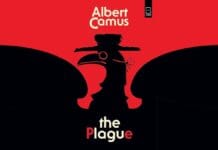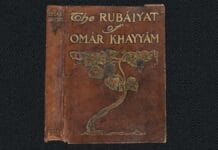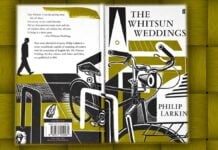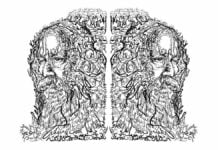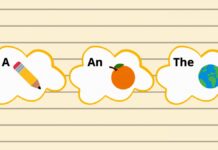On the Road by Jack Kerouac is a seminal work that has become a cornerstone of the Beat Generation’s literature. The semi-autobiographical novel, published in 1957, is an account of Kerouac’s journeys across America in the late 1940s and early 1950s, primarily with his friend Neal Cassady. Kerouac’s spontaneous prose style and his raw depiction of the counterculture of the 1950s have made On the Road a timeless piece of literature, capturing the restless spirit of a generation seeking freedom and authenticity.
The narrative follows the central character Sal Paradise, representing Kerouac himself, who is restless and looking for freedom, inspiration, and the true essence of life. He embarks on an odyssey, meeting a variety of characters along the way, notably Dean Moriarty representing his friend Cassady, who epitomizes rebellion against conformist society and conventional values.
On the Road explores themes of rebellion, wanderlust, and the search for meaning in a conformist society. Kerouac’s style is characterized by its stream-of-consciousness narrative, devoid of punctuation and filled with spontaneous and vivid descriptions. This style reflects the Beat philosophy of living in the present moment and embracing the spontaneity of life. The novel’s themes and style continue to resonate with readers today, as it encourages individuals to break free from societal constraints and seek their path to fulfilment.
The novel begins with Sal, a young writer, meeting Dean, a charismatic and restless man. Dean is newly married, but he is already bored with his life and eager to hit the road. Sal is drawn to Dean’s vitality and sense of adventure, and they quickly become friends. Over the next few years, Sal and Dean travel all over the United States, meeting a variety of people and having a variety of experiences. They hitchhike, hop freight trains, and drive cars. They stay in cheap hotels and sleep in parks. They meet jazz musicians, poets, and other members of the Beat Generation. They drink, smoke marijuana, and have sex.
Through their travels, Sal and Dean learn a lot about themselves and the world. They experience the joy of freedom and the pain of loss. They come to understand the importance of friendship and the power of love. On the Road is a celebration of the American road trip and the Beat Generation. It is a novel about the pursuit of freedom, the power of connections between individuals, and the search for meaning.
Kerouac belongs to the Beat Generation, a group of writers and poets that emerged in the 1950s, and rejected the conformity and materialism of post-war America. They had a profound influence on American literature and culture. Their works, much like the novel, celebrated individualism, spontaneity, and the pursuit of self-discovery. Their unconventional writing style and subject matter challenged the traditional literary norms of the time and paved the way for experimental and avant-garde literature. This countercultural movement not only challenged societal norms but also paved the way for future generations to question and redefine their own identities and aspirations.
On the Road is a quintessential representation of the Beat Generation’s spirit. The novel follows the protagonist, Sal Paradise, as he embarks on a series of road trips across America, seeking freedom, adventure, and self-discovery. The characters in the book reject societal norms and instead choose to live life on their terms, embracing spontaneity and the pursuit of personal experiences. Through its stream-of-consciousness writing style and exploration of themes such as rebellion, wanderlust, and the search for meaning, On the Road encapsulates the essence of the Beat Generation’s rejection of conformity and their yearning for a more authentic existence.
The characters of the novel embark on a quest for freedom and identity, fueled by their desire to break free from the constraints of a rigid society. They reject the notion of a predetermined identity and instead seek to define themselves through their own experiences and choices. This search for freedom and identity is not only a physical journey across America, but also a psychological and spiritual exploration, as they strive to discover their true selves and find meaning in a world that often feels devoid of it.
In the novel, freedom is depicted as a constant struggle against societal constraints and conformity. The characters embark on a road trip to escape the limitations imposed by their families, society, and even their inner demons. As they travel from city to city, they engage in reckless behaviour, experimenting with drugs, sex, and various countercultural movements. This exploration of freedom is not just a physical act, but a rebellion against the norms and expectations that stifle their individuality. Ultimately, their pursuit of freedom becomes a manifestation of their desire to live life on their terms, to break free from the chains of society and embrace their true selves.
Throughout their journey, the characters are constantly searching for their true identities, trying on different personas and ideologies to see what fits. They yearn to discover who they truly are, beyond the expectations and labels imposed by society. This search for identity becomes a central theme in their lives, as they grapple with questions of purpose, belonging, and authenticity. Through their reckless behaviour and experimentation, they hope to uncover the essence of their being and find a sense of self that is true and unapologetic.
The concept of the American Dream is explored in On the Road and is ultimately disillusioned. The characters in the novel, particularly Sal Paradise and Dean Moriarty, initially believe in the idea that success and happiness can be achieved through material wealth and societal acceptance. However, as they embark on their cross-country journeys, they discover that the pursuit of the American Dream often leads to emptiness and disillusionment. They realize that true fulfillment comes from embracing their passions and living life on their terms, rather than conforming to societal norms. The novel thus critiques the idea of the American Dream and suggests that true happiness lies in individuality and freedom rather than in materialistic pursuits.
Kerouac depicts women as mere objects of desire or sources of temporary pleasure for the male protagonists. They are seen as interchangeable and disposable, serving as little more than distractions from the characters’ search for personal freedom and meaning. This portrayal reflects society’s devaluation of women and their relegation to secondary roles, reinforcing the larger theme of conformity and the suppression of individuality. The limited agency given to women in the novel highlights the oppressive nature of the society the characters are rebelling against, further fueling their disillusionment and desire for personal growth.
However, the female characters serve as powerful symbols of resistance against these limitations. They refuse to conform to societal expectations and instead assert their independence and agency. Through their actions and decisions, they challenge the notion that women are solely objects of male desire and control. By pursuing their ambitions and dreams, they inspire other women in society to break free from the constraints that have been imposed upon them. Ultimately, these female characters become catalysts for change, sparking a revolution that challenges the very foundations of the societal norm.

Exploration of Freedom and Rebellion
On the Road is a celebration of freedom and a rejection of societal norms. The characters, particularly Sal Paradise (Kerouac’s alter ego), seek personal liberation through a relentless pursuit of self-discovery and spontaneity. This exploration of freedom is both alluring and unsettling, as it often leads to reckless behaviour and moral ambiguity.
The Search for the ‘It’
Throughout the novel, Sal and his companions are in a constant quest for what they call ‘It’. ‘It’ is an elusive, almost spiritual, quality that represents the essence of life. This search drives the characters to engage in a never-ending cycle of movement, seeking meaning and transcendence in the experience itself.
Road as Metaphor
The road itself is a central metaphor in the novel, symbolizing the journey of life. It represents the transient and impermanent nature of existence, where the destination is less important than the act of travelling itself. The characters embrace the road as a way to escape conformity and seek authenticity.
Characterisation and Relationships
Kerouac presents a diverse cast of characters who are often morally complex. Dean Moriarty, in particular, is a charismatic but deeply flawed figure, embodying the tensions between liberation and responsibility. The novel explores the impact of these relationships on Sal’s sense of self and the sacrifices made in the pursuit of personal freedom.
Prose Style
Kerouac’s writing style is notable for its stream-of-consciousness narrative, characterized by long, flowing sentences and spontaneous, unedited prose. This style reflects the characters’ desire to capture the immediacy and intensity of their experiences. While it adds to the novel’s authenticity, it can be challenging for some readers, and its repetitiveness may wear thin over time.
Critiques and Controversies
On the Road has faced criticism for its perceived glorification of reckless behaviour, misogyny, and its limited portrayal of women and minorities. Some argue that it romanticizes a privileged, white male perspective of the American experience, failing to engage with the complexities of society at large.
Legacy and Influence
Despite its controversies, On the Road remains a significant work that has influenced subsequent generations of writers, musicians, and artists. It played a pivotal role in the countercultural movements of the 1950s and 1960s and continues to resonate with those who seek to challenge societal norms and embrace a more authentic, unconventional lifestyle.
On the Road by Jack Kerouac is a complex and polarizing novel that explores themes of freedom, rebellion, and the search for meaning in an ever-changing world. The novel has been praised for its raw energy, its honesty, and its depiction of the Beat Generation. It has been criticized for its glorification of drugs and alcohol and its negative portrayal of women. Despite its flaws, On the Road remains a classic of American literature. Its impact on American literature and culture is undeniable, but its portrayal of certain aspects of society and its characters raises important questions about its relevance and limitations in the context of contemporary readership.

